Liquefied Petroleum Gas (LPG)
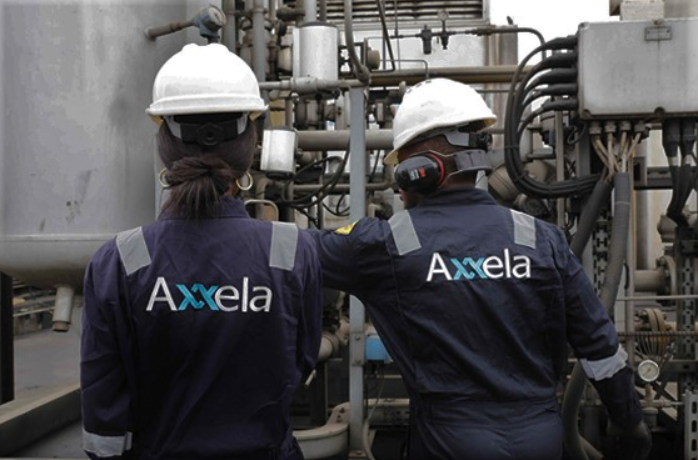
Axxela’s new gas plant to expand Nigeria’s gas infrastructure following bond success
Axxela Limited, a leading African gas and power company owned by Helios Investment Partners and Sojitz of Japan, has announced a Final Investment Decision to develop a 50 million standard cubic feet per day (MMscf/d) gas processing plant in Delta State, as it pushes towards sustainable energy solutions in Nigeria. This decision is bolstered by Axxela’s successful ₦16.4 billion bond issuance earlier this month, which was oversubscribed by 109 percent. The announcement comes as Axxela continues to expand its footprint in the energy sector, following last year’s agreement with BUA Group, one of Africa’s largest conglomerates, and CIMC ENRIC, a global leader in the energy equipment industry, to build a 700-ton-per-day mini liquefied natural gas (LNG) project. The new gas processing plant, expected to begin operations by the end of 2024, will start with a 12 MMscf/d modular unit and is designed for rapid expansion, with the potential to increase the plant’s output to 50 MMscf/d within 18 months. It is a key part of Axxela’s strategy to support the Nigerian government’s Decade of Gas initiative and to enhance domestic gas utilization. Strategically located in OML 152, the gas processing plant is expected to serve as a central processing hub for surrounding oil & gas operators, with the potential to transform gas flaring into a valuable economic resource, and significantly reduce CO2 emissions. “We are positioning to develop requisite infrastructure for natural gas processing and last mile distribution that creates market access for at least 20% of Nigeria’s gas demand,” Axxela’s Director of Business Development, Franklin Umole, said in a company statement. “Over the past two decades, we have been at the forefront of natural gas advocacy, and this project is a further reaffirmation of our dedication to gas infrastructure development and our vision to deliver innovative energy solutions across Nigeria and Africa.’’ In preparation for the project, Axxela has secured a long-term feedstock supply agreement with a leading local upstream company and established equipment supply arrangements with top-tier Original Equipment Manufacturers (OEMs). Upon completion, the processed gas will support various market segments, including Compressed Natural Gas (CNG) for vehicles, industrial feedstock, and decentralized power solutions, marking a significant step towards energy security and economic growth in Nigeria. Boost from successful bond issuance In a related financial achievement, Axxela recently raised ₦16.4 billion in an oversubscribed bond issuance, despite challenging economic conditions marked by rising interest rates and limited market liquidity. The funds will be instrumental in realizing the gas plant project. “This is a significant indicator of increasing investor confidence in our company’s reputation, brand, and performance,” CEO at Axxela Bolaji Osunsanya said. “The bond proceeds will support the development of our growth projects, signifying the importance of local and international capital markets in the development of critical infrastructure.” With the FID and successful bond issuance, Axxela looks to advance Nigeria’s gas infrastructure, support the energy transition, and meet the increasing demand for cleaner energy solutions.
Read more »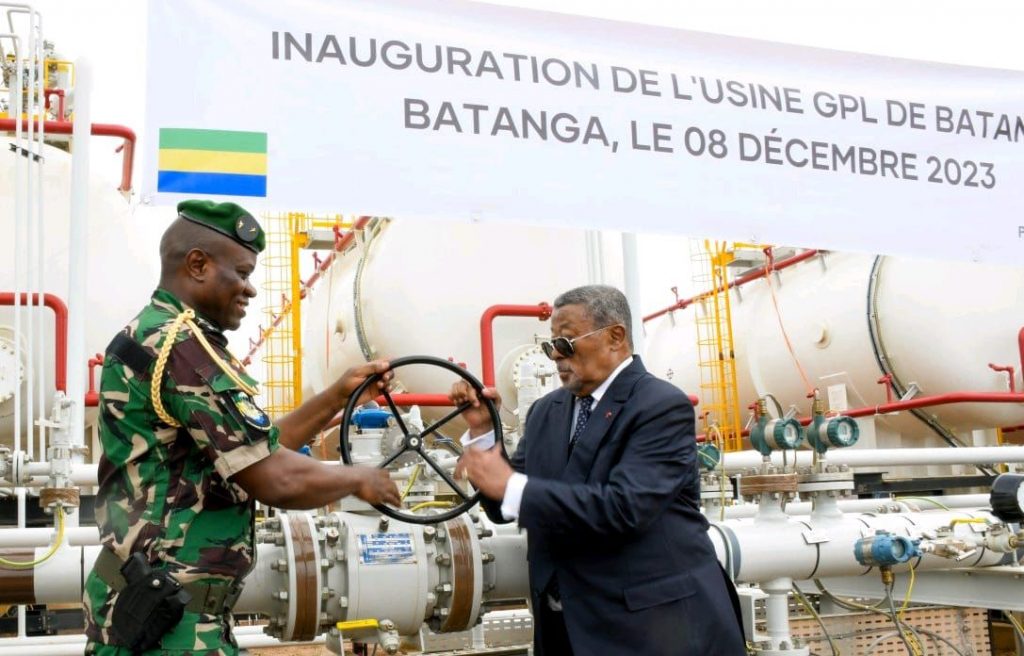
Perenco opens the tap on new Gabon LPG unit
Gabon’s Transition President General Brice Clotaire Oligui Nguema has inaugurated Perenco’s Batanga LPG Plant last week, marking another critical milestone in the roll out of Perenco’s gas monetisation strategy in Central Africa. Perenco is a pioneer in the monetisation of associated gas in the Gulf of Guinea where it is deploying innovative solutions to reduce flaring and process gas for the production of electricity, liquefied petroleum gas (LPG) or liquefied natural gas (LNG). In the 2000s, it commissioned a high pressure offshore pipeline network of over 400km in Gabon, including a compression station at Batanga to supply previously flared gas to the power stations of Libreville and Port Gentil. Additional compressors have been installed since to further reduce flaring, with volumes averaging 50 MMscf/d. The commissioning of the 15,000 tonnes per year (tpy) LPG unit at Batanga represents the next step in an already successful strategy of monetising local resources in Gabon. It will help the country cut imports of cooking gas by a at least a third, and will be followed by the commissioning of the 0.7 tpy Cap Lopez LNG terminal in 2026. Perenco is also progressing the development of a 21 MW gas-to-power plant at Mayumba in the south of the country, in collaboration with the Gabon Power Company.
Read more »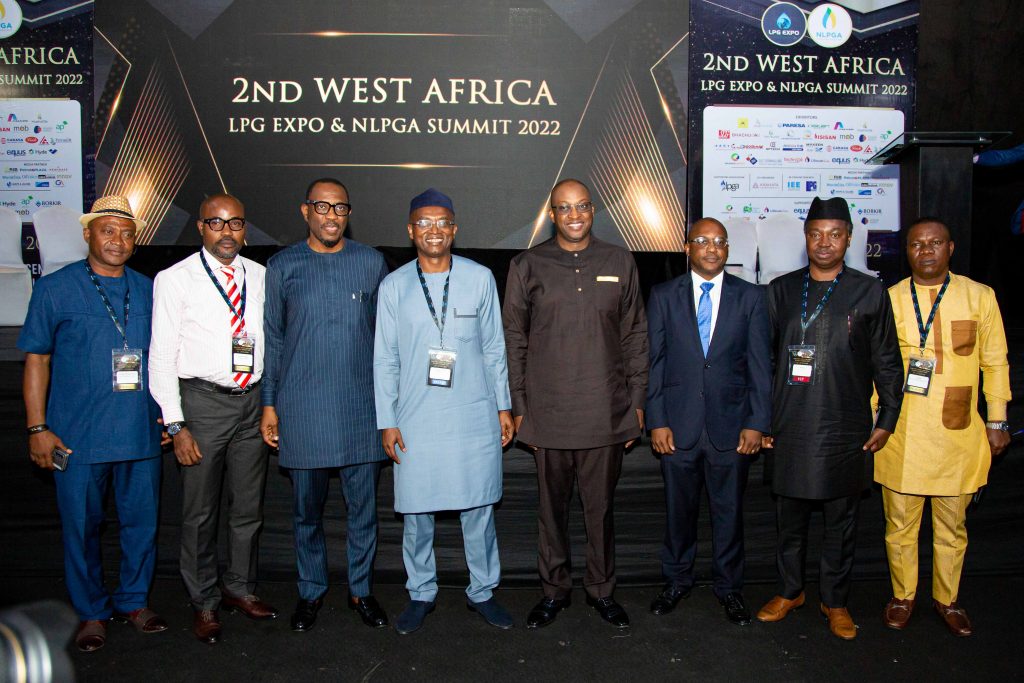
Nigerian stakeholders call for policy adjustments to increase adoption of clean cooking fuels
The Nigerian public and private sector gathered at the call of the Nigeria LPG Association (NLPGA) during the 2nd West Africa LPG Expo & NLPGA Summit 2022 in Lagos (June 23-24) to push for a stronger adoption of gas across Africa’s biggest economy. The Summit welcomed captains of the industry and leading public figures, including Chief Olusegun A. Obasanjo, Former President of Nigeria; Engr. Simbi K. Wabote, Executive Secretary of the Nigerian Content Development and Monitoring Board (NCDMB); Mr. Nuhu Yakubu, President of the NLPGA and Managing Director of Banner Energy; Dr. M.M. Ibrahim, Chairman of the National Gas Expansion Programme; Mr. Felix Ekundayo, Managing Director of ASIKO Energy and Gas Terminalling; Mrs. Nkechi Obi, Group Managing Director/CEO of Techno Oil; and Mr. Adyo Adeshina, Programme Manager of the LPG Expansion Implementation Plan within the Office of the Vice President, among others. A key takeaway from the event was a call from the industry for policy adjustments around the fiscality of LPG in Nigeria, especially on output VAT. A misplaced VAT was notably blamed for decreased LPG consumption in the country since 2021, year when supplies started to stagnate around the 1m metric tonne threshold and stopped increasing at double digit figures. Key participants also highlighted the need for better coordination amongst various governmental agencies involved across the value-chain, from customs to roads. A Push for Localisation Representatives of the Nigerian government notably explained how they are taking steps to boost LPG production and availability across the country. During the Summit, Dayo Adeshina recalled that Nigeria LNG, the country’s biggest LPG producer, recently decided to allocate all of its LPG production to the domestic market. He further revealed that talks were ongoing with additional producers of gas liquids, including ExxonMobil and Chevron, to decrease exports and supply the domestic market instead. ExxonMobil is notably operator of the Bonny River Terminal where it processes natural gas liquids into cooking gas, among others. On the other side, Chevron operates the Escravos Gas Plant and Escravos Gas-to-Liquids facility with a capacity of 33,000 barrels per day (bpd). Nigeria has some of the lowest gas penetration rates in Africa despite holding the continent’s largest proven reserves of natural gas. In 2020, the government launched the Decade of Gas initiative to try to incentive gas consumption and adoption across the economy. However, soaring prices of cooking gas since 2021 have made LPG unaffordable for many Nigerians. Increasing domestic output is seen as a solution to mitigate risks against soaring import prices, in a country that consumed slightly over 1m metric tonnes of LPG last year. The Achievements of the Gas Expansion Programme The Decade of Gas is notably backed by the Nigerian Gas Expansion Programme (NGEP), which focuses on the distribution of Autogas (CNG) and LPG across gas stations operated by the state-owned NNPC Ltd. Its immediate target, which is yet to be met, was to convert 1 million of Nigeria’s 22 million PMS-fueled vehicles to gas by 2021. During the Summit, NGEP Chairman M.M. Ibrahim shared updates on its advancement and the achievements realized so far. In 2020 and 2021, over 12,000 licensed retail outlets were notably classified as fit-for-purpose for co-locations of Autogas fuel nationwide. In parallel, revised regulatory guidelines were issued for co-located Autogas fuel retail outlets and other gas solutions. After it confirmed the potential for Autogas nationwide, Nigeria proceeded to convert and commission over 30,000 of its public mass transport buses on dual fuels while supporting auto assemblers to keep producing fit-for-purpose dual fuel vehicles in-country. These have paved the ground for an acceleration of the country’s gas promotion agenda in 2022 and 2023, in a context of soaring petroleum products prices, especially diesel. Gas was adopted by the Nigerian government as a transition fuel and will remain a critical component of its energy mix. It is also seen as the ideal substitution fuel to expensive diesel, especially for industrial customers.
Read more »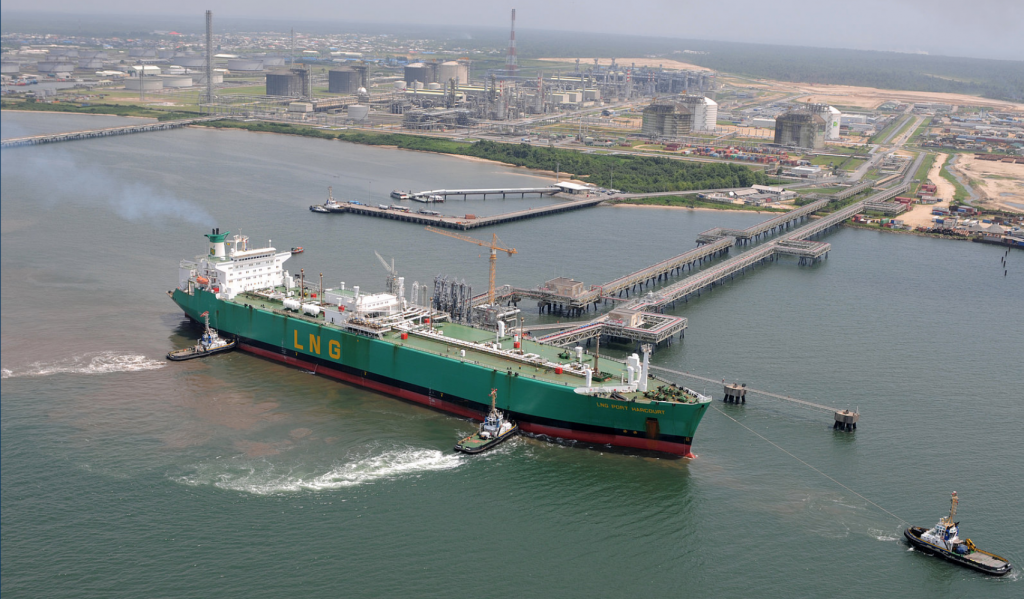
Nigeria LNG decides to allocate all its LPG supply to the Nigerian market amidst soaring prices
The board of Nigeria LNG (NLNG) approved yesterday the supply of its entire production of propane and butane to the Nigerian market. In September 2019, the company had already decided to increase its domestic LPG supplies from 350,000 tonnes to 450,000 tonnes per year from 2021 onwards. Last year, NLNG’s supplies reached about 400,000 tonnes. A few months ago, Nigeria LNG also supplied its first propane cargo into Nigeria. According to the company, it has developed a scheme to sustainably supply propane for usage in cooking gas blending as well as in agro-allied, autogas, power and petrochemical sectors. Until now, it had only supplied butane cargoes, with initial deliveries starting back in 2007. “These initiatives are designed to increase LPG availability in Nigeria, diversifying its uses and support the Federal Government’s Decade of Gas initiative,” Nigeria LNG said in a statement. The supply and consumption of cooking gas (or LPG) in Nigeria has witnessed a compound annual growth rate (CAGR) of over 20% for several years. As a result, the market successfully absorbed a record of over 1 million metric tonnes (MMT) of LPG in 2020. The government is hoping to reach 5 MMT by 2030. However, soaring global gas prices in 2021 have limited the growth of the sector in a country where over half of LPG supplies are met by imports. As a result of current market conditions, most Nigerians cannot afford cooking gas anymore and are going back to burning wood or using biomass fuels. As a result, supply grew only very modestly last year and did not go much higher than the 1 MMT threshold. To make LPG more affordable, the Nigerian government is incentivizing the growth in local production. A 7.5% VAT was imposed on imported LPG last year despite strong opposition from the industry. However, only a significant rise in domestic output could help offset external vulnerabilities, and hopes are that the full allocation of Nigeria LNG’s production to the domestic market could contribute to bring prices down.
Read more »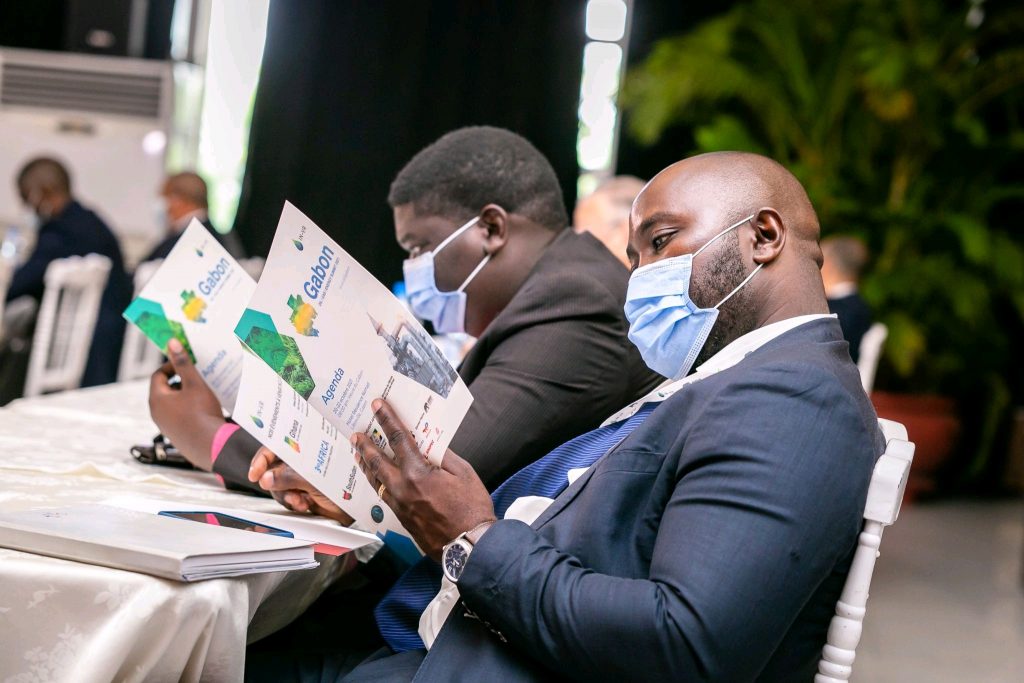
Gabon exposes clear vision on what to do with its natural gas
Gabon is thought to hold anywhere between 3 to 5 trillion cubic feet (Tcf) of gas, although the country remains a small gas producer. To date, most of its gas has remained on the ground or flared – with only small quantities monetised domestically for power generation in Libreville and Port Gentil. But as Gabon implements an ambitious “Green Gabon” environmental policy and seeks to diversify its economy, the country wants to cut routine flaring altogether and monetise it for the benefits of its industries, households, and economy. The recent Gabon Oil, Gas & Energy Summit organized by IN-VR in Libreville last October notably exposed the alignment of most parties on the need to monetise gas instead of flaring it. A New Gas Strategy in the Making To achieve its gas ambitions, Gabon is currently working on a new Gas Master Plan with Wood Mackenzie and the World Bank’s Global Gas Flaring Reduction Partnership (GGFR). The plan will have four major ambitions: reduce gas flaring, increase energy security, expand access to affordable energy and attract investments into gas projects. Gabon’s flared gas currently emits about 2,244,500 tonnes of CO2 per year, enough to generate 500 MW of power. Natural gas also features prominently within the country’s 2021-2023 Plan to Accelerate Transformation (PAT), which includes a dedicated Gas Task Force headed by former Gabon Oil executive Yann Pierre A. Livulibutt Yangari. “Our gas strategy is targeting actions across the whole value-chain. In upstream, we want to get operators to explore for gas and stop considering it as a risk. In midstream, we want to see flared gas being monetised for the benefits of the Gabonese economy. Finally in downstream, we want to improve gas supplies especially of liquefied petroleum gas (LPG), compressed natural gas (CNG) and liquefied natural gas (LNG),” Yangari said during IN-VR’s summit. As it stands, Gabon intends to primarily monetise flared gas to generate power, manufacture urea and produce methanol. These are the major industries identified based on existing gas reserves and technology available from existing investors and operators in the country. Once these are developed, hopes are that by-products would follow, especially when it comes to LPG, CNG (Autogas) and micro-LNG. Source: DGEPF “We are working on supporting the development of a gas-based economic network to support local content development, promote technology adoption and support industrialisation,” Yangari added. While Gabon has not discovered enough gas reserves to justify the development of more significant industries like LNG for export or gas-to-liquids, the country remains hopeful. Its 12th Licensing Bid Round has resulted in the award of new exploration blocks, and upcoming drilling campaigns could result in new gas discoveries supporting further gas developments in the medium-term. To justify the investment, Gabon is putting forward its growing industrial base driving demand for both power and gas. Last September, the Gabon Power Company (GPC) notably signed a landmark Concession Agreement with Wärtsilä for the development, supply, construction, operation, and maintenance of a new 120 MW gas-to-power project in Owendo, next to the capital city of Libreville. But beyond just the power sector, Gabon wants to provide gas to its mining, forestry, agro-industry, and steel industries. In parallel, its logistics network is expanding with railways and maritime industries both positioned to be potential off-takers sooner than later. An Opportunity for Small-Scale Gas Projects Gabon’s vision relies on the monetization of gas into CNG for transport and micro-LNG for industries. A key strategy is to expand the country’s CNG network but use micro-LNG for any remote industries located over 400km from producing fields, especially mining industries. To support such expansion, the country is seeking investors across several projects such as LPG plants, LNG and CNG plants, LNG and CNG storage, onsite regasification and bi-fuel conversion. Chief amongst them is the need to secure 30,000 cubic metres of additional butane storage capacity, up from only 4 to 5,000 cubic metres now. Source: DGEPF Port Gentil features prominently within that vision as a pilot city to grow the CNG industry. It is there that Perenco already runs a private gas retail station for 40 of its own vehicles. Now, Gabon wants to grow the market by constructing public CNG stations in partnership with oil marketers and develop a new pricing structure for CNG. The aim is clear: reduce petroleum products imports while generating additional revenues from domestic gas. Perenco Takes the Lead Perenco will be a key actor of that transition to gas. The operator is the country’s sole commercial gas producer and currently supplies gas feedstock to the power stations of Port Gentil and Libreville. In fact, 100% of Port Gentil’s power relies on Perenco’s gas while 70% of Libreville’s power is generated from the operator’s gas supply. “We have invested $500m into the development of a 400km onshore and offshore gas gathering system in Gabon that supplies gas to power plants but also key industries such as Sobraga. In the process, we created 150 jobs,” Director General Adrien Broche said during the IN-VR Summit. Perenco is now increasing its investments and leveraging on its existing infrastructure to commission a 10 to 15,000 tonnes per annum (tpa) LPG plant in Batanga by 2023. Batanga is currently the cornerstone of its gas business and is equipped with enough compressors to compress gas to over 100 bars so it can be transported across the country. “The Libreville and Port Gentil power stations currently represent an off-take of about 40 MMscfd,” Broche explained. “While only half of that capacity was coming from flared gas, we are installing additional compression capacity so all feedstock supplied to power plants comes from previously flared gas. We have installed two onshore compressors this year and are now expecting additional ones for offshore operations. By mid-2022 or early 2023, all gas we send onshore for power generation will come from previously burned resources,” he added. The Need for an Industry and Policy Consensus But to furter monetise gas and create jobs, Gabon must first find a way to aggregate
Read more »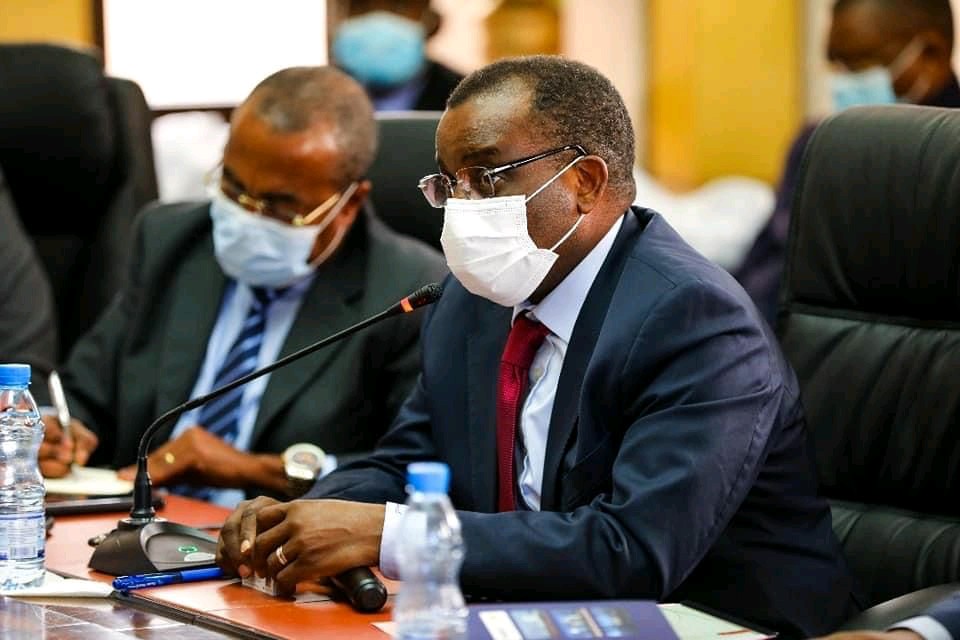
Gabon on the move: what you need to know ahead of the Gabon Oil, Gas & Energy Summit in Libreville this week
Nested in the Gulf of Guinea, Gabon has built itself a reputation of environmental stewardship and sustainable development of its natural resources. The country of less than 2.5m notably hosts Africa’s largest forest elephant population and is covered at 88% by rainforest. Despite being an established offshore hydrocarbons province, Gabon is steadily diversifying away from oil. A public-private partnership with ARISE IIP resulted in the establishment of one of Africa’s most modern and efficient free zones now serving a growing industrial and mining base. The country is in fact one of the world’s top producers of manganese, of which it exported almost 4m tonnes in the first half of the year. Gabon has also successfully industrialised its wood industry to become a recognised exporter of timber: between January and June 2021, the country produced over 1 million m3 of logs. Gabon’s economy remains fairly diversified compared to that of its African neighbours. Its oil & gas sector’s contribution to the GDP stood at 37.7% in 2020 and represented 33% of government revenues last year. Oil exports also accounted for 70% of total export revenues. Maintaining the pace of investment in the country’s hydrocarbons value-chain remains a priority for the government, especially as it seeks to develop gas-based economies and use oil revenues to invest in sustainable infrastructure and the conservation of its environment. A Focus on Reversing Production Decline Gabon is member of the Organisation of Petroleum Exporting Countries (OPEC) and produced an average of 183,000 barrels of oil per day (bopd) between January and September 2021. This makes it sub-Saharan Africa’s fourth largest producer, behind Nigeria, Angola and Congo-Brazzaville and more or less at par with Ghana. Production has been in decline for several years and has stagnated in the recent past. Gabon launched its 12th Licensing Bid Round before Covid19, which it is just concluding now. The round generated relatively strong interest given market dynamics, and award letters started being issued this month with BW Energy provisionally securing two blocks along with partners Panoro Energy and VAALCO Energy. Source: DGEPF The award of new exploration acreage is much needed in order to encourage seismic acquisition and exploratory drilling and ultimately maintain production in the medium-term. Exploration has so far been a miss this year, with BW Energy’s Hibiscus Extension appraisal well (DHIBM-2) encountering water in the first half of the year, and its Hibiscus North exploration well (DHBNM-1) failing to deliver on pre-drill resource estimate in July. An Independents’ Market Gabon is an independents and national oil companies (NOCs)’ game. Shell Gabon sold all its assets in the country to Assala Energy in November 2017, and Total Gabon sold seven of its non-operated mature fields and operatorship of the Cap Lopez Oil Terminal to Perenco in July 2020. Beyond Assala Energy and Perenco, Gabon’s upstream sector is dominated by Maurel & Prom, VAALCO Energy and BW Energy along with a few NOCs such as Petronas. TotalEnergies remains the only IOC still operating upstream assets in the country. Gabon continues to offer significant opportunities for independents, both onshore and offshore. In February 2021, Panoro Energy acquired Tullow Oil’s 10% working interest in BW Energy’s Dussafu Marin Permit. A New Strategy to Monetise Domestic Gas Gabon has been working for a few years on a new strategy to monetise gas to generate additional electricity and develop new gas-based industries. The move benefits from significant political will and support and is one of the key pillars of the country’s new three-year plan over the 2021-2023 period, dubbed Plan to Accelerate the Transformation (PAT). Because Perenco represents most of the country’s operated gas production, it will play a major role in the development of Gabon’s domestic gas market. The company completed this year studies and plans for the new 10,000 metric tonnes Batanga LPG plant, where construction is expected to start before the end of the year. In July 2019, Gabon’s Ministry of Petroleum, Gas and Mines had also signed an agreement giving the Olowi Field to Perenco as its new operator. The field was developed between 2005 and 2018 by Canadian Natural Resources and is now to be redeveloped under an integrated gas project. Source: DGEPF Finally, an expanding gas industry will benefit the power sector. Gabon already runs several gas-to-power facilities and in September 2021, the Gabon Power Company (GPC) signed a landmark Concession Agreement with Wärtsilä for the development, supply, construction, operation, and maintenance of a new 120 MW gas-to-power project in Owendo, next to the capital city of Libreville. A Diversifying Energy Basket Beyond gas, Gabon is also expanding its energy sector with the development of its solar and water resources. Several hydropower plants are currently being developed, When it comes to hydroelectricity, Meridiam and the Gabon Power Company successfully reached financial close on the 35 MW Kinguélé Aval in July this year. Additional facilities include the 15 MW Dibwangui hydropower plant and the 73 MW Ngoulmendjim hydropower plants, whose power purchase agreements (PPA) were signed with Eranove in 2018. Solar energy is also making its entry into the country’s grid with the signing last August of a contract with the Turkish group Desiba Energy for the construction of a 20 MW solar power plant in Doubou, in the province of Ngounié. To find out about investment and business opportunities in Gabon, register for IN-VR’s Gabon Oil, Gas & Energy Summit hybrid conference taking place in Libreville and online between October 20th-22nd. More information at https://www.in-vr.co/gabon. All details on ongoing and future projects across Gabon’s energy sector are available within your Hawilti+ research terminal.
Read more »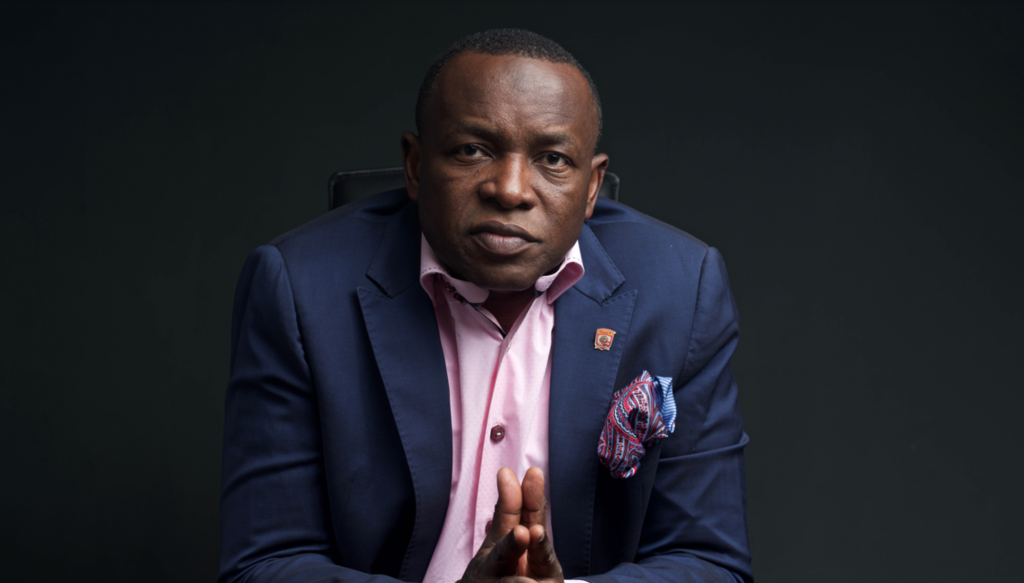
Nigeria’s Sahara Group commits $1bn to LPG vessels and infrastructure in Africa
Nigerian energy infrastructure conglomerate, Sahara Group, has announced an investment of $1bn into Africa’s liquefied petroleum gas (LPG) value chain during the African Refiners and Distribution Association (ARDA) conference 2021 in South Africa this week. “Sahara, through its subsidiary, WAGL Energy Limited is already working towards investing $1 billion to ramp up its LPG fleet and terminal infrastructure over the next five years. In addition to the vessel fleet, Sahara is in the process of building over 120,000 metric tonnes of LPG storage in eleven countries,” he said. In October 2020, Sahara and Côte d’Ivoire’s national oil company PETROCI notably broke ground on a new 12,000 MT LPG storage terminal on the outskirts of Abidjan. The company has also earmarked additional such projects in Nigeria, Senegal, Ghana, Tanzania and Zambia while considering additional investment elsewhere on the continent.
Read more »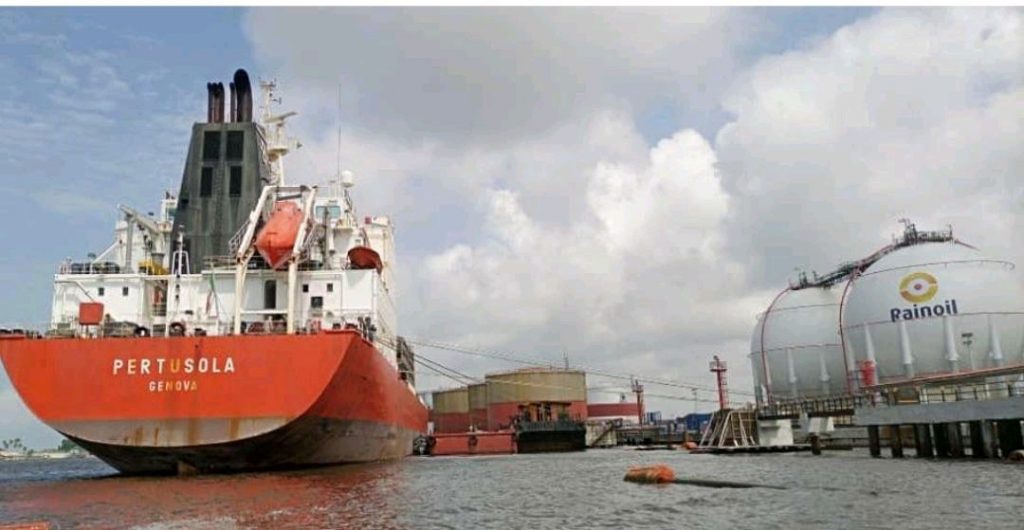
Why Nigeria’s LPG industry is an underrated investment opportunity
With a compound annual growth rate of 27% between 2018 and 2020, Nigeria’s liquefied petroleum gas (LPG) supply is amongst the fastest growing in Africa. Last year, the country absorbed its first million metric tonnes of LPG, up from 840,000 MT in 2019 and 635,650 MT in 2018. And the forecast for further growth is very positive. In a study released in July 2021 for the Clean Cooking Alliance, Fraym estimates that only 15% of Nigeria’s 49m households use LPG as clean cooking fuel. The rest relies on wood, especially in rural areas, or kerosene. The 9m Nigerian households that use clean cooking fuels are obviously concentrated in urban areas, especially in major cities such as Lagos, Ibadan, Benin City, Abuja, Kaduna, Kano and Port Harcourt. They also represent the major consumers of LPG in the country, given that industry and power have remained small LPG off-takers so far. With 40m households yet to have access to clean cooking fuels, the potential is enormous to grow the country’s LPG supply and infrastructure. While most Nigerian households cannot afford LPG, the same study by Fraym also estimates that at least 6m households are urban early-adopters and likely to afford clean cookstoves in urban areas. This is a significat market that most marketers and distributors are currently targeting, and which could potentially afford to spend the annual average of NGN 2,800 per month per household for LPG consumption. The rest of Nigerian households are likely to continue relying on wood (NGN 1,100/month) and kerosene (NGN 1,200/month), at least for the time being. But the opportunity is not only in reaching out to the under-served. Nigeria still imports about half of its LPG supply, and while the growth of imports has been slowing down, it is still growing. Research by Hawilti shows that LPG imports, mostly from the USA and Equatorial Guinea, represented 52.3% of total Nigerian LPG supply in H1 2021 compared with an average of 53% in 2020. Source: PPPRA Nigerian domestic LPG suppliers remain limited, with Nigeria LNG representing 75% of all domestic LPG supply in H1 2021. New domestic suppliers have emerged this year, including in Kwale, Oredo, Egbaoma and Rumuji. But their production capacities remain small compared to market needs. Put simply, LPG is a tremendous import substitution business in Nigeria. Whoever produces will find a market, providing it is ready to sell domestically instead of seeking foreign exchange on the global export market. Meanwhile, infrastructure is being expanded. Three new LPG terminals are currently under-development: Ardova’s 20,000MT facility and Gas Terminalling’s 5,000 MT facility in Lagos and Chimons Gas’ 5,500 MT facility in Warri (Delta State). They are all expecting commissioning before the end of 2022. Ardova’s 20,000 MT storage facility in Lagos will notably act as an import and blending terminal and will be blending propane and butane once commissioned, a company executive confirmed Hawilti. It will also be able to receive LPG cargoes, be them imported or from Nigeria LNG. Meanwhile, Banner Energy continues to progress towards financial close for its own $65m, 13,000 MT LPG terminal in Akwa Ibom. It would be Southeast Nigeria’s biggest facility, and Banner Energy has appointed a financial advisor to progress to financial close. LPG will remain a hot commodity in Nigeria for years to come. Supply disruptions are currently sending prices up, further supporting market activity with several new private sector players eye trading opportunities in the short and medium-term. But the real challenge for the industry’s growth will remain that of affordability and finding out the right business models that work out for Nigeria’s 40m households in need of healthy and clean cooking fuels.
Read more »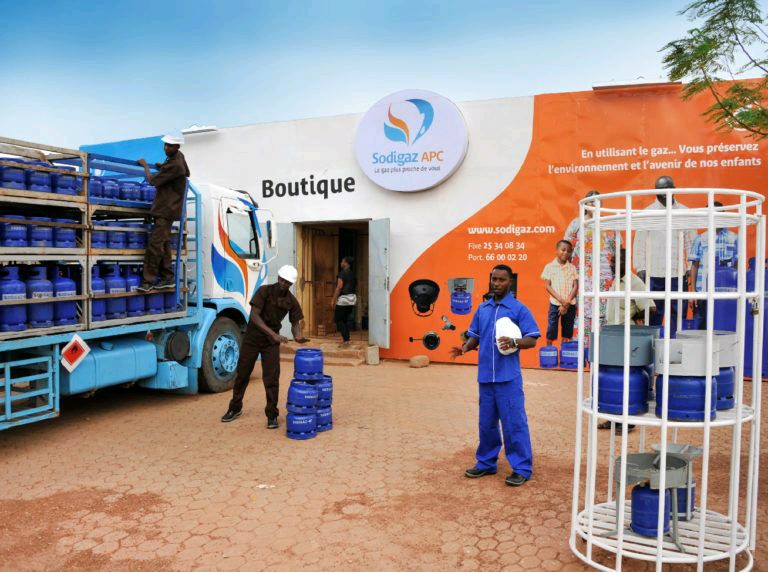
Amethis successfully exits Burkina Faso’s leading LPG distributor
Following its investment in Burkina Faso’s leading LPG distributor Sodigaz APC in 2017, Amethis has just sold its 22% stake in the company to African Infrastructure Investment Managers (AIIM). Over the years, Sodigaz has built a 60% market share of Burkina Faso’s LPG distribution market and currently relies on a network of 2,200 gas resellers. Since its beginning in 1977, the company has grown to a 780-employee structure known for its commitment to gender equality. The entry of AIIM into Sodigaz’ capital takes place as West Africa’s LPG market experiences significant growth. As a result, the company has recorded an annual growth rate of over 14% over the past four years and expanded into neighbouring countries such as Benin. As West Africa’s middle class expands and governments seek to fight deforestation and promote public health, the demand for a clean cooking fuel such as LPG is on the rise. This is a trend that applies to the rest of the region and is increasingly generating the interest of investors, especially private equity players. Earlier this year for instance, Investisseurs & Partenaires’ fund I&P Afrique Entrepreneurs 2 made a $3m equity investment in XpressGas, Ghana’s fastest growing LPG distributor.
Read more »